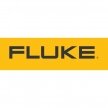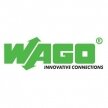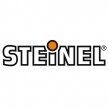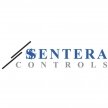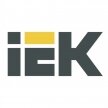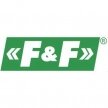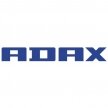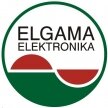-
Product Catalog
- Security and Surveillance Systems
- Automatic Circuit Breakers for Direct Current (DC) Circuits with Integrated Overload, Short-Circuit, and Voltage Stabilization Protection Functions
- Lighting with the help of electrical energy
-
Automation and Control Systems
-
Automation control accessories
- Time voltage deviation current level network control visualization relay
- Signal tower modules | accessories
- Power and time control relays for home automation with integrated SCHUKO sockets, designed for alternating and direct current protection and for household users.
- Boxes for signaling equipment | Signal lights
- Cam switches | for devices on/off control
- Electric motor control | protection management
- Soft starter devices for electric motors
- Energy meters
- Control components for automation and control systems
- Passive lifting | unloading | transporting magnets
- Signal converters | controllers for automation control | for control systems
- Touchscreens | panels for automation control | control systems
- Power Contactors | Control Circuit Intermediate Relays
- Optical sensors | detectors for automation devices
- Automation control | Data transmission | Low current
-
Automation control accessories
- Sealing profiles | rubber | gaskets | strips
- Inflatable Liquid Storage Tanks | Reservoirs | Bladders
- Inflatable rubber plugs for sealing high-pressure plumbing pipes
- Electrical distribution and installation
- Solar Energy Generation and Management Equipment
- HVAC control solutions for heating and ventilation.
- Special products and accessories
- Other products
- Safety tools
- Quality used products
Servo Controllers for Automation Systems
- Read more
Servo controllers are essential components used to precisely control servo motors. They ensure that the motor performs the desired movements and positions with extremely high accuracy and speed. Servo controllers are particularly important in industrial, robotics, and automation systems, where precise movement control and the execution of complex tasks, such as angle, speed, position, and precise trajectory control, are required. These controllers are most often used in conjunction with servo motors, which ensure high efficiency and accuracy.
-
Read more
Main Features and Components
Precise Control: Servo controllers allow for highly precise control of motor position, speed, and direction. They achieve this precision using feedback systems, such as encoders, which continuously monitor the motor's position and report to the controller whether the motor is meeting the set parameters.
Quick Response and High Precision: These controllers enable fast response to input signals, ensuring that the motor reacts quickly and accurately. This is especially important in robotics, automation, and production lines, where fast and precisely controlled movement is required.
Feedback System: The greatest advantage of servo controllers is their feedback system. Encoders or other feedback devices constantly monitor the motor's position and speed. The controller uses this information to ensure precise motor operation.
Programmable and Configurable: Most servo controllers are programmable and can be configured to meet specific system requirements. This makes them adaptable for use in various automation, manufacturing, and robotics processes.
Voltage and Current Control: Servo controllers can manage the motor's power supply to ensure stable and efficient operation. This includes controlling both voltage and current, depending on the motor's load and operating conditions.
Technical SpecificationsPower Supply Voltage: Servo controllers are typically used with 24V, 48V, 110V, or 220V DC or AC voltage, depending on the type of motor and system requirements.
Maximum Motor Current: The maximum current of different controllers can range from a few amperes to several tens of amperes, depending on the motor's power and type.
Control Frequency: Servo controllers operate at high frequencies, usually from several kilohertz (kHz), ensuring quick response and precise control.
Input and Output Interfaces: These controllers feature various input and output interfaces, such as analog and digital inputs, PWM (pulse-width modulation), computer interfaces (Ethernet, RS485), and more.
ApplicationsRobotics: Servo controllers are frequently used in robots where precise movement control is required for tasks like component assembly, lifting, or transporting objects.
CNC Machines and Automation: CNC (computer numerical control) machines and other automated devices use servo controllers to precisely control motor position, speed, and motion trajectories.
Industrial Equipment: Servo controllers are used in industrial equipment where precise movement is needed, such as in production lines, packaging systems, and other automated manufacturing areas.
Automotive Manufacturing: These controllers are used in automotive assembly lines and robotics to ensure precise movements and positions when assembling complex parts.
Material Processing and Precision Assembly: Servo controllers ensure high precision in processes like material cutting, pressing, drilling, precision assembly, and more.
AdvantagesHigh Precision: Servo motors and controllers provide highly accurate movement, making them ideal for applications requiring high precision.
Fast Response Time: Servo controllers respond quickly and ensure rapid and precise motor movements, making them perfect for dynamic industrial processes.
Energy Efficiency: These controllers efficiently manage motors, ensuring lower energy consumption and reduced heat generation.
Durability and Reliability: Servo controllers and motors have a long service life and are highly reliable even in demanding conditions.
DisadvantagesCost: Servo controllers and motors can be expensive compared to simpler controllers or motors, potentially increasing system costs.
Complex Installation and Configuration: Although highly precise, the installation and configuration of these controllers can be complex and require specialized knowledge.
Need for Additional Equipment: Servo controllers often require additional equipment, such as feedback systems (encoders), to achieve the desired precision and performance.
Noise: While not present in all devices, some servo controllers and motors can generate significant noise, which may be problematic in a working environment.
Servo controllers are essential components in industrial and automation systems where precise motor movement and speed are required. These controllers provide high accuracy, fast response, and energy efficiency, but their cost and installation complexity may be higher than other types of controllers. Nevertheless, due to their precision and durability, servo controllers are an excellent choice for industrial and robotics applications where complex tasks need to be performed with high accuracy and speed.No items found.
US IN SOCIAL NETWORKS







